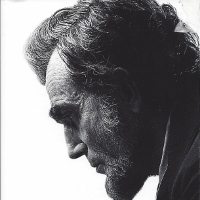“The last of the human freedoms is to choose one’s attitude.”
So wrote Viktor Frankl, an Austrian neurologist and psychiatrist who survived the Holocaust, living through the deprivation and horrors of both Auschwitz and Dachau.

His wife, parents and brother were killed by the Nazis. His captors imprisoned him with barbed wire. They assigned him his lice-infected bed. They gave him one set of striped prison clothes. They allowed him no menu options, just a crust of bread and watered-down soup.
They told him when to wake up, when to work and when to sleep. They controlled all his relationships and restricted his speech, severely punishing the slightest disrespect or opposition.
They took away every freedom a person can have … except for one. They could not force their way into his mind and take away his freedom to choose his attitude toward his circumstances and his life. That was his and his alone to control.
The same is true for you and me, especially with the much smaller struggles we face.
Your disloyal friend cannot control your attitude. But you can.
Your unreasonable teacher cannot control your attitude. But you can.
Your difficult spouse cannot control your attitude. But you can.
Your rebellious teen cannot control your attitude. But you can.
Your ungrateful supervisor cannot control your attitude. But you can.
You and you alone will choose whether you will be hopeful or despairing today. Thankful or grumbling. Cheerful or miserable. Patient or irritable. Encouraging or critical. Kind or harsh. The list of choices goes on and on.
Yes, it’s hard to choose a positive attitude in the face of difficult circumstances or hurtful relationships. But like Viktor Frankl, you have the ability to choose your attitude in every situation you face, whether it involves great challenges or minor disappointments.
When you choose an attitude of hopefulness and personal responsibility regardless of what others are doing, you will be able to confidently apply the life-changing principles of relational wisdom. As you wisely manage your emotions, words and actions and live out your your values thoughtfully and consistently, you will preserve many relationships and become an inspiring example to others.
– Ken Sande
Reflection questions:
- Imagine that you were in a concentration camp and saw all of your loved ones murdered. What attitude would you have been tempted to embrace?
- What attitude did Viktor Frankl seem to embrace? Be as specific as possible.
- When someone repeatedly mistreats, criticizes or disappoints you, what attitude do you typically develop? Does that attitude drag you down or empower you to respond constructively?
- Think of a situation or relationship in your life where you are typically inclined to feel hopeless and helpless. How could embracing Viktor Frankl’s wisdom principle change the way you deal with the situation or person in the future?
For more guidance on how to improve your relational wisdom, see Discover RW.
Permission to distribute: Please feel free to download, print, or electronically share this message in its entirety for non-commercial purposes with as many people as you like.
© 2017 Ken Sande
Would you like to receive future posts like this? Subscribe now!




